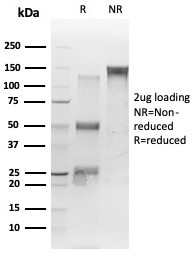Cookie preferences
This website uses cookies, which are necessary for the technical operation of the website and are always set. Other cookies, which increase the comfort when using this website, are used for direct advertising or to facilitate interaction with other websites and social networks, are only set with your consent.
Configuration
Technically required
These cookies are necessary for the basic functions of the shop.
"Allow all cookies" cookie
"Decline all cookies" cookie
CSRF token
Cookie preferences
Currency change
Customer-specific caching
FACT-Finder tracking
Individual prices
Selected shop
Session
Comfort functions
These cookies are used to make the shopping experience even more appealing, for example for the recognition of the visitor.
Note
Show the facebook fanpage in the right blod sidebar
Statistics & Tracking
Affiliate program
Conversion and usertracking via Google Tag Manager
Track device being used

| Item number | Size | Datasheet | Manual | SDS | Delivery time | Quantity | Price |
|---|---|---|---|---|---|---|---|
| NSJ-V4706SAF-100UG | 100 µg | - | - |
3 - 10 business days* |
752.00€
|
If you have any questions, please use our Contact Form.
You can also order by e-mail: info@biomol.com
Larger quantity required? Request bulk
You can also order by e-mail: info@biomol.com
Larger quantity required? Request bulk
1 mg/ml in 1X PBS, BSA free, sodium azide free. TARDBP (TAR DNA binding protein), also known as... more
Product information "Anti-TDP43 / TARDBP / TAR DNA binding protein, clone TARDP/349"
1 mg/ml in 1X PBS, BSA free, sodium azide free. TARDBP (TAR DNA binding protein), also known as TDP-43, is a nuclear protein that contains two RRM (RNA recognition motif) domains. Ubiquitously expressed with highest levels found in placenta, lung, pancreas, spleen and genital tract, TARDBP functions as a DNA-binding protein and specifically binds to the TAR DNA sequence motifs of HIV. Via this association with TAR motifs, TARDBP acts as a transcriptional repressor and inhibits HIV-1 transcription. TARDBP can also function as a negative regulator of splicing activity and is known to be involved in the splicing of CFTR (cystic fibrosis transmembrane receptor). In addition, TARDBP is a major component of ubiquitin-positive inclusion bodies that are prominent in many neurodegenerative diseases. This suggests that TARDBP may play a role in the development of neurodegenerative disorders. Due to alternative splicing events, various isoforms exist for TARDBP. Protein function: RNA-binding protein that is involved in various steps of RNA biogenesis and processing (PubMed:23519609). Preferentially binds, via its two RNA recognition motifs RRM1 and RRM2, to GU-repeats on RNA molecules predominantly localized within long introns and in the 3'UTR of mRNAs (PubMed:23519609, PubMed:24240615, PubMed:24464995). In turn, regulates the splicing of many non-coding and protein-coding RNAs including proteins involved in neuronal survival, as well as mRNAs that encode proteins relevant for neurodegenerative diseases (PubMed:21358640, PubMed:29438978). Plays a role in maintaining mitochondrial homeostasis by regulating the processing of mitochondrial transcripts (PubMed:28794432). Regulates also mRNA stability by recruiting CNOT7/CAF1 deadenylase on mRNA 3'UTR leading to poly(A) tail deadenylation and thus shortening (PubMed:30520513). In response to oxidative insult, associates with stalled ribosomes localized to stress granules (SGs) and contributes to cell survival (PubMed:23398327, PubMed:19765185). Participates also in the normal skeletal muscle formation and regeneration, forming cytoplasmic myo-granules and binding mRNAs that encode sarcomeric proteins (PubMed:30464263). Plays a role in the maintenance of the circadian clock periodicity via stabilization of the CRY1 and CRY2 proteins in a FBXL3-dependent manner (PubMed:27123980). Negatively regulates the expression of CDK6 (PubMed:19760257). Regulates the expression of HDAC6, ATG7 and VCP in a PPIA/CYPA-dependent manner (PubMed:25678563). [The UniProt Consortium]
| Keywords: | Anti-TDP-43, Anti-TAR DNA-binding protein 43, TDP43 Antibody / TARDBP / TAR DNA binding protein |
| Supplier: | NSJ Bioreagents |
| Supplier-Nr: | V4706SAF |
Properties
| Application: | ELISA, WB, IHC (paraffin) |
| Antibody Type: | Monoclonal |
| Clone: | TARDP/349 |
| Conjugate: | No |
| Host: | Mouse |
| Species reactivity: | human |
| Immunogen: | A recombinant fragment from the human protein (within amino acids 200-414) |
| Format: | Purified |
Database Information
| KEGG ID : | K23600 | Matching products |
| UniProt ID : | Q13148 | Matching products |
| Gene ID | GeneID 23435 | Matching products |
Handling & Safety
| Storage: | -20°C |
| Shipping: | -20°C (International: -20°C) |
Caution
Our products are for laboratory research use only: Not for administration to humans!
Our products are for laboratory research use only: Not for administration to humans!
Information about the product reference will follow.
more
You will get a certificate here
Viewed


